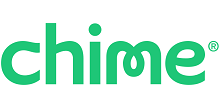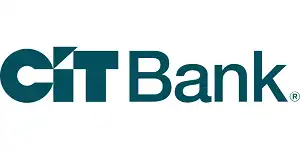Chime® is an online financial technology company whose aim is to help customers lead healthier financial lives.
Chime works with two regional banks, The Bancorp Bank and Stride Bank, to provide customers with a comprehensive, simple-to-use online bank account. They offer checking and savings accounts with no monthly fees, no overdraft fees, and no minimum balance requirements. Chime is one of the apps that can save you money for future goals, through features like “Round Ups^” and “Save When I Get Paid1,” and also build credit with their Secured Chime Credit Builder Visa® Credit Card.
Nevertheless, Chime isn’t perfect, and its benefits come with certain drawbacks. Check out the details below to assess whether Chime is the right banking solution for you.
What is Chime®?

Chime is classified as a “neobank,” which is a startup company that offers financial products like checking and savings accounts without having any actual branches.
Technically, neobanks are not actual banks, which means they aren’t chartered or protected by the FDIC. Instead, neobanks protect their clients by partnering with large banks that are chartered and covered. Chime partners with both The Bancorp Bank and Stride Bank.
Instead, neobanks focus their attention on creating a mobile app experience. They give you the tools and resources to manage your money efficiently and effectively, while their partner bank does all the banking and holding of your funds.
Co-founders Chris Britt and Ryan King launched Chime in 2014 as a way to shake up the banking industry, and they quickly became a significant leader in the neobanking space. However, Chime has also received a large number of complaints in recent years, many due to frozen accounts and fraudulent charges Chime wouldn’t reverse.
Before you sign up for a service like Chime, make sure you’ve researched thoroughly.
Pros & cons
Pros
- Easy to save money — Enables you to save automatically with features like “Round Up^” and “Save When I Get Paid.1”
- No fees2 — With Chime, you can forget about monthly fees, minimum balance fees, overdraft fees, foreign transaction fees, cash withdrawal fees, and more.
- Flexible requirements — No minimum account balance required
- Early direct deposit — Customers can get their paycheck up to two days earlier than traditional banks with Chime’s early direct deposit feature3
- Chime Checkbook — With Chime Checkbook, you can submit an online request to mail a physical check.
- Mobile app experience — Chime boasts having the “no. 1 most loved banking app,” and it shows. Chime has 4.8 stars on Apple and 4.6 on Google Play.
Cons
- No additional banking services — While Chime offers a savings account, checking account, debit card, and secured credit card, additional services provided by traditional banks, such as home and auto loans or retirement accounts, are not available through Chime.
- Limits on checks — Since Chime is an online bank, customers who like using paper checks will face some limitations. For example, to use Chime’s mobile check deposit feature4, customers need to have received a qualifying direct deposit of at least $1.
- No joint accounts or secondary cards — Chime won’t let you open a joint account and offers just one debit card per account, which can be a deal-breaker for some couples. They are working to change this.
- No physical location — Chime operates entirely online, which may not be ideal for customers who prefer the convenience of a local bank.
Chime® Checking Account
Chime’s checking account has a lot to offer, and it all comes with no monthly fees.
Opening your Chime checking account shouldn’t take more than a couple of minutes, after which you’ll receive your Chime Visa® Debit Card in the mail in just 7-10 business days. In the meantime, you can use Chime’s highly rated mobile app to securely transfer funds and set up early direct deposit, which allows account holders to receive their paychecks up to two days early.3
Once your Chime checking account is set up, you won’t have to worry about maintaining a minimum balance requirement. In fact, Chime’s partnership with SpotMe® means you can overdraft up to $200 with no fees (for eligible Chime members who (1) have activated their Chime debit card and (2) receive $200 or more in qualifying direct deposits)5.
If you ever need to withdraw a little cash, Chime has a massive network of 60,000+ fee-free ATMs (including Walmart, CVS, and 7-Eleven), which you can locate easily using their ATM Finder map, provided in the Chime app. For cash deposits, account holders can visit one of Chime’s 8,500+ Walgreens partners and do so for free6.
For all these perks, Chime’s checking account does have some drawbacks. For instance, only those customers signed up for direct deposit are eligible for mobile check deposit4. Additionally, while you can deposit cash in your Chime checking account at thousands of retail locations, you may be charged a transaction fee to do so (only cash deposits at Walgreens are fee-free).
Chime® Savings Account
With a Chime savings account, customers can earn a generous rate of 2.00% (with no minimum balance requirement) and save for future goals automatically.
To open a Chime Savings Account, you first need a Chime Checking Account. Again, the process takes just a couple minutes, and since the account is free to open and use, it’s well worth the effort.
Chime’s Savings Account rewards its customers handsomely for saving money, but the best part is you don’t have to lift a finger. Every time you make a purchase with your Chime Visa® Debit Card or pay a bill, Chime’s “Round Up” feature automatically rounds the charge up to the nearest dollar and then transfers that excess to your savings account.^ For example, if you spend $4.55 on a latte at Starbucks, Chime will add an extra $0.45 charge to your account and move that into your savings.
While “Round Ups” allow Chime customers to save automatically as money leaves their checking account, Chime’s “Save When I Get Paid” feature allows you to save as money enters the account too. For every direct deposit of $500 or more, Chime transfers 10% of that paycheck from your checking account into your savings.1
As with Chime’s checking account, their savings account isn’t perfect. Perhaps the biggest drawback to Chime’s savings account is you can’t deposit money directly. Instead, customers can transfer funds from their Chime checking account or add money to their savings through the “Save When I Get Paid” feature.1
Chime® features
No monthly fees
When you sign up for a typical checking account, there are fees. Monthly service fees, minimum balance requirements, overdraft fees, foreign transaction fees, fees for withdrawing cash, among many others.
Chime charges none of these fees, so you’re free to focus on your money.2
Early direct deposit
When you set up direct deposit with your employer, Chime allows you to access those funds up to two days earlier than is typically permitted with traditional banks. All you have to do is email yourself a pre-filled direct deposit form after opening your Chime checking account (information is available under “Move Money” in the Chime mobile app). Simply hand that form to your employer and wait for your cash to arrive!3
Automatic savings
One of Chime’s greatest perks is the ability to save money automatically both when you spend and when you get paid.
When you spend money, Chime rounds up the transaction to the nearest dollar amount and deposits the difference into your savings account.^ You can also automatically transfer 10% of your paycheck into your savings account the moment you get paid.1
Chime Credit Builder Secured Visa® Credit Card
The Chime Credit Builder Visa® Credit Card is a secured credit card that helps customers build credit easily.8 There’s no fee to apply, no annual fee, no interest9, and no credit history requirements.
As a secured credit card, this card operates a little differently than your average credit card. To spend on your card, you’ll move money from your Chime Checking Account into a Credit Builder secured account. That’s the amount you can spend. You can use that money to pay off your monthly balance, and since Credit Builder doesn’t have a pre-set limit, you won’t be dinged on your credit report for spending up to the amount you added.
After you’ve opened your Chime checking account, all you need to be eligible for this credit card is qualifying direct deposits of $200 or more10.
Real-time alerts and notifications
With Chime, you can receive daily notifications about your balance, as well as on-the-spot transaction notifications. If you’re an avid budgeter, the app will also remind you to track the expense right away.
The instant notifications are also helpful in the event your card is stolen or lost — then you’ll know if someone else is using it and you can take action immediately through the app and shut it down.
Pay anyone
Pay Anyone is Chime’s version of Venmo or Apple Pay.
You can send money instantly to friends for anything — dinner bills, football games, martinis, etc. These payments are safe and secure (FDIC-insured through The Bancorp Bank or Stride Bank), and there are no transfer fees. All you need is a valid debit card.
Although Chime members can send and receive money instantly, non-members have just two weeks to claim their funds. Non-members will receive a text or email alerting them of the transaction, which contains a link to the Chime website. To claim their money, they can choose to open a Chime checking account or simply provide their debit card information.
Who should use Chime®?
Chime is the ideal online banking solution* for individuals looking for easy ways to save money and build credit. Chime aims to help its customers keep more money in their own pockets. They accomplish this by offering automatic savings features and avoiding many traditional bank fees. In fact, the only profit Chime gets from its customers is through interchange fees from card transactions.
Their website states: “Every time you use your Chime Visa® Debit Card or Secured Chime Credit Builder Visa® Credit Card for purchases and paying bills, Visa processes the transaction and charges an interchange fee to merchants for the service. Chime receives a portion of this fee.”
Chime is also a great option for individuals who want to build their credit simply, safely, and for free. Chime’s Secured Chime Credit Builder Visa® Credit Card makes it easy for Chime checking account holders to extend their credit history and establish on-time payment history, and they don’t charge customers to do so.8
Who shouldn’t use Chime®?
Chime has grown up in an age where technology is king, and it caters to folks who lean heavily on features like direct deposit, automatic savings tools, and mobile apps. In these areas, Chime thrives, but those who prefer to do their business with cash and paper checks may be disappointed by certain limitations.
For instance, if you want to deposit cash in your Chime account, you’ll have to visit a Walgreens location to do so for free. Customers who have grown accustomed to paper checkbooks will also face some adjustments. To use Chime’s mobile check deposit feature, for example, customers need to have received a qualifying direct deposit of at least $14. If you’d like to send a check, you must do so online via Chime Checkbook, where you can submit a request to mail a check to a specific recipient (takes 3-9 business days).
Finally, customers who prefer the convenience of a local banking institution may prefer an alternative bank, as Chime doesn’t have any physical branches and operates entirely online.
The competition
Chime vs CIT Bank
CIT Bank has a leg up on Chime, because they have been around for a really long time and have established a solid reputation. They’re an online bank with multiple products from competitive CDs to home loans, but their CIT Bank Platinum Savings is what stands out with its up to 4.30% APY — one of the highest we’ve seen. See site for details.
Like Chime’s savings account, the CIT Platinum Savings Account is FDIC-insured and has no monthly maintenance fees.
With no account opening or monthly service fees, the CIT Platinum Savings Account is a premier option that offers a competitive 4.30% APY with a balance of $5,000 or more.
With an initial deposit minimum of just $100 to open an account and no minimum balance required after, this is an easy high-yield savings account to open. See site for details.
- Earn up to 4.30% APY
- No monthly service fees
- Unlimited transfers and withdrawals
- Fast, easy account opening
- Balance requirement for max APY
- Lack of ATM access
Additionally, CIT Bank reimburses customers for some ATM fees charged by other banks (up to $30). Chime makes no such offer.
» MORE: Read our full review of the CIT Bank Platinum Savings Account
Chime vs Ally Bank

Ally Bank is a strong competitor for Chime, and they offer several additional financial services, including home and auto loans, investment options, and IRAs.
Ally Bank offers excellent, FDIC-insured savings and checking accounts, both of which have no monthly maintenance fees or minimum balance requirements. Ally’s savings account has a similar round-up feature to Chime’s (round-ups compile over time and are transferred when you reach $5), and their checking account provides similar overdraft coverage up to $250 called CoverDraft (Chime Spot Me® provides overdraft coverage up to $200).
Despite these similarities, Ally does feature a higher interest offer.
Nevertheless, Chime does have Ally beat in some respects. For instance, Ally Bank does not allow cash deposits, but Chime does. Additionally, Ally Bank does not offer customers a credit card option, while Chime has a secured credit card available for customers.
The bottom line
Chime provides a fee-free2 online banking account that helps you put your savings on autopilot.
Thanks to features like “Round Up^” and “Save When I Get Paid1,” account holders can watch their savings grow automatically. Chime’s checking account comes with some attractive offerings as well, including early direct deposit and overdraft coverage. Customers can even receive a Chime Credit Builder Visa® Credit Card and build their credit, even if they have no established credit history.
